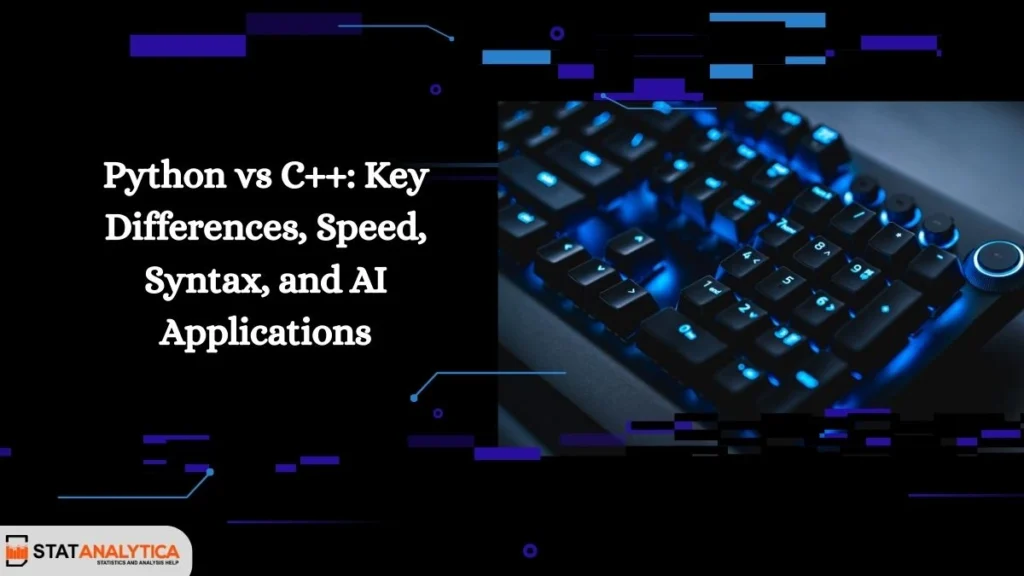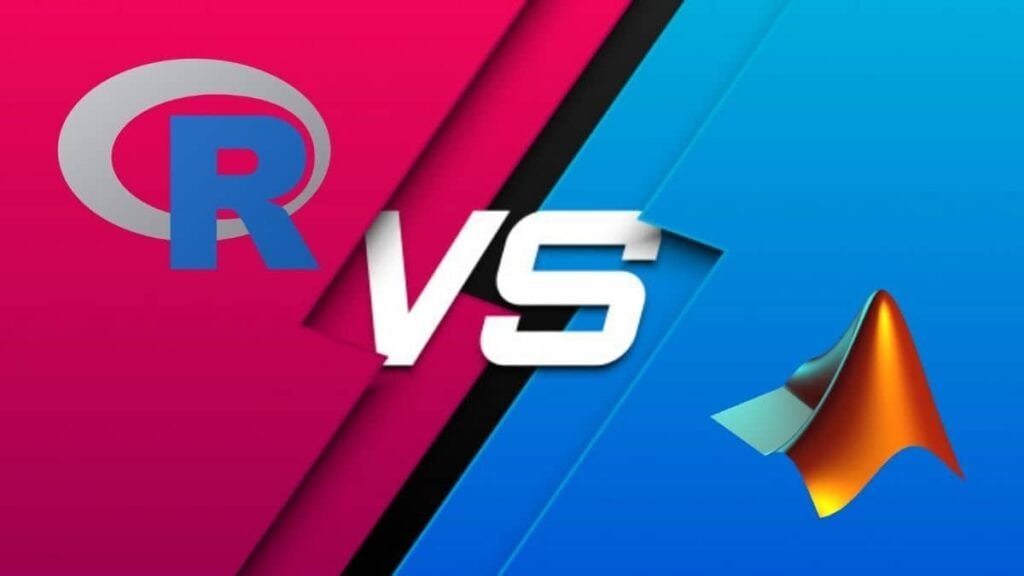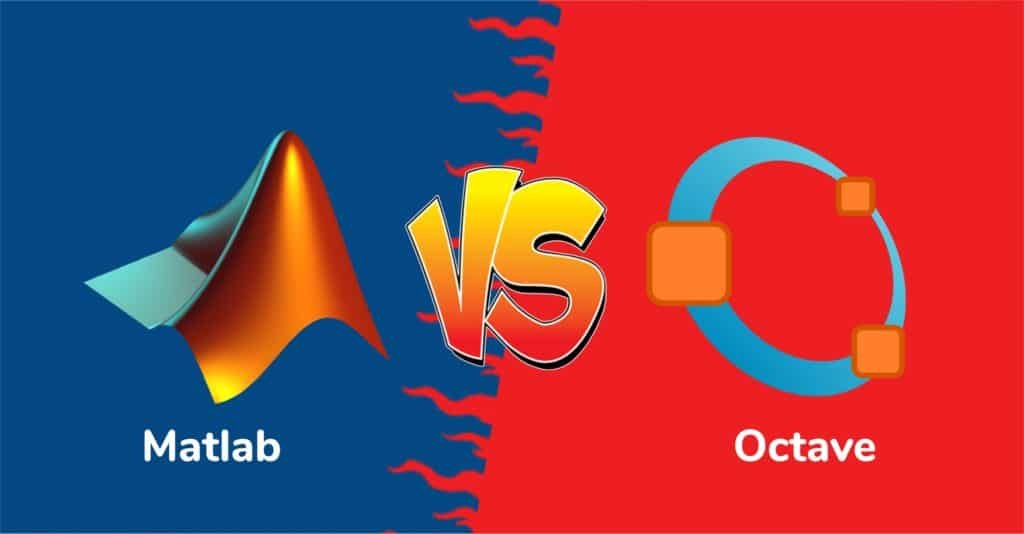In the world of programming, one of the most debated comparisons is between Python and C++. Whether you’re building a web application, diving into artificial intelligence, or designing high-performance systems, choosing the right language is crucial. In this blog, we’ll explore the difference between Python and C++, their speed, syntax, applications in AI and machine learning, and much more to help you make the right choice in 2025.
Difference between Python and C++
Table of Contents
What is Python?
Python is a high-level, interpreted, and general-purpose programming language known for its simplicity, readability, and vast library ecosystem. Created by Guido van Rossum and released in 1991, Python emphasizes code readability and allows developers to express concepts in fewer lines of code.
Key Features of Python
- Easy-to-understand syntax
- Dynamic typing
- Cross-platform support
- Extensive standard libraries
- Massive community support
Common Uses of Python
- Web Development (e.g., Django, Flask)
- Data Science and Analytics
- Machine Learning and AI
- Automation and Scripting
- Game Development (e.g., Pygame)
What is C++?
C++ is a powerful, compiled, object-oriented programming language developed by Bjarne Stroustrup in 1985. It is widely used for system programming, game engines, and performance-critical applications.
Key Features of C++
- High performance through compilation
- Manual memory management
- Object-oriented and procedural programming support
- Low-level system access
- Great for embedded and real-time systems
Common Uses of C++
- Operating Systems
- Game Development (e.g., Unreal Engine)
- Embedded Systems
- Desktop Applications
- High-Frequency Trading Platforms
Python vs C++ Syntax: Simplicity vs Control
One of the most striking differences between Python and C++ lies in their syntax.
Python Syntax
- Clean and readable
- No curly braces; indentation-based
- Easier for beginners
C++ Syntax
- Curly-brace syntax
- Requires semicolons, headers, and strict structure
- Offers granular control
Example Comparison

Python vs C++ Speed: Performance Matters
One of the most common concerns is: Is C++ faster than Python?
Yes. C++ is a compiled language and is significantly faster than Python, which is interpreted.
Why C++ is Faster
- Compiled to machine code
- No interpreter overhead
- Memory management is manual and optimized.
Why Python is Slower
- Interpreted at runtime
- Dynamic typing adds overhead.
- Slower for computation-intensive tasks
| Aspect | Python | C++ |
| Compilation | Interpreted | Compiled |
| Speed | Moderate | Very Fast |
| Memory Management | Automatic | Manual |
Machine Learning: Python vs C++ for AI
Why Python Leads in AI
Python dominates the AI and ML space due to its simplicity and extensive libraries like:
- TensorFlow
- PyTorch
- Scikit-learn
- Keras
- OpenCV
Python also supports fast prototyping, visualization (Matplotlib, Seaborn), and integration with Jupyter Notebooks.
Where C++ Shines in AI
While Python is used for training models, C++ is preferred for deploying them in production due to speed and low-level control. Libraries like TensorRT, dlib, and OpenCV (C++ API) offer great performance.
AI Use Case Comparison
| Task | Python Preferred | C++ Preferred |
| Model Training | ✅ | ❌ |
| Prototyping | ✅ | ❌ |
| Production Inference | ⚠️ (Slow) | ✅ (Fast) |
| Embedded AI | ❌ | ✅ |
Real-World Use Cases: Python vs C++ in Action
| Industry/Domain | Python | C++ |
| Web Development | Django, Flask | Not commonly used |
| System Programming | Limited | Widely used (Linux, Windows) |
| Game Development | Scripting (Godot) | Unreal Engine, Unity backend |
| Data Science | Pandas, Numpy, Scikit-learn | C++ APIs for speed |
| AI/ML | Model Development | Deployment and optimization |
Pros and Cons
Python Pros
- Beginner-friendly
- Quick development
- Rich ecosystem of libraries
- Great for AI and data science
Python Cons
- Slower execution
- Not suitable for hardware-level programming
C++ Pros
- High speed and performance
- Hardware and system-level control
- Powerful for games and simulations
C++ Cons
- Complex syntax
- Harder to debug
- Longer development time
Which Language Should You Learn in 2025?
Choose Python If
- You’re a beginner
- You want to get into AI, data science, and automation.
- You prefer faster development with easy syntax.
Choose C++ If
- You’re into systems programming
- You’re building performance-critical software.
- You want full control over memory and execution.
In fact, mastering both Python and C++ gives you a competitive edge. Python for rapid development, AI, and automation; C++ for robust, high-performance systems.
Conclusion
In conclusion, both Python and C++ are powerful in their own right. Where Python offers ease of use, speed of development, and dominance in AI, C++ excels in performance, system-level programming, and game development. Your choice depends on your goals. For AI and machine learning, start with Python. For embedded systems or real-time applications, go with C++. Mastering both can future-proof your skills and open up a world of opportunities in 2025 and beyond!
Also Read: Python vs SQL for Data Analysis: Which is Best for Your Data Science Journey?


